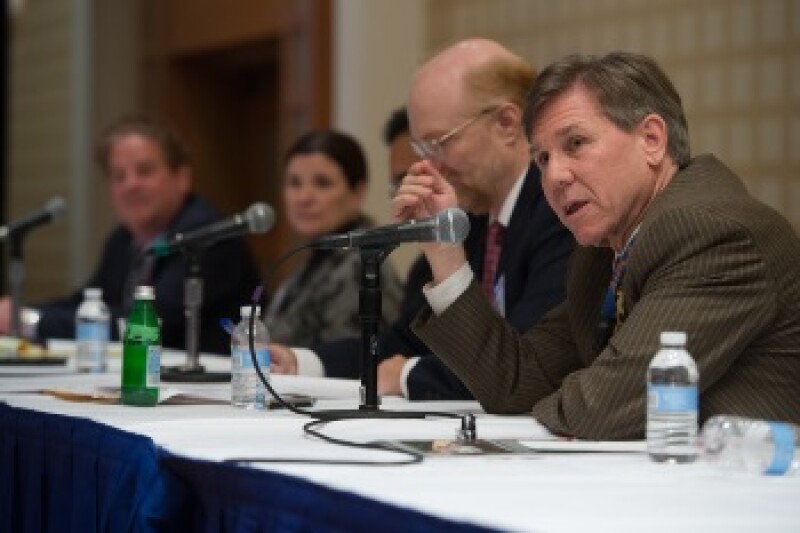You can see all of our coverage from the meeting by visiting www.managingip.com/aiplaAM14.
You can also download PDFs of the AIPLA Daily Report by visiting http://www.managingip.com/Conference-Newspapers.html
Speakers at the AIPLA meeting raised fears that 101 was being distorted by recent court decisions such as Alice and Myriad. Qualcomm’s Laurie Self said the initial threshold test of whether an invention is eligible subject matter for patent protection should be a coarse filter.
“Unfortunately the Supreme Court keeps moving 101 in a direction that increasingly seems to conflate 101 analysis with the statutory criteria of 102 or 103 or 112. That’s really problematic for R&D intensive industries and organizations in this country,” she said. “The good news is that, at least in our sector, the Supreme Court did not create a categorical ban for subject matter eligibility for so-called software related patents. But it keeps flirting with this notion of a categorical ban and that is problematic.”
David Kappos of Cravath Swaine & Moore, and former director of the USPTO, agreed, noting that 101 was never meant to do the heavy lifting being demanded of it now. “It encourages 101 to become the answer to every question about the patentability of inventions, and it takes what was always meant to be a very coarse filter – the filter that should apply at the very end as a backstop – and makes it into a much more granular filter that is trying to lift more than it possibly can.”
He continued: “If there was any mistake made in the AIA, it was to leave 101 as 101. We should have moved it to 999! Leaving it as 101 encourages courts and others to get confused and think it’s the first thing they need to look at.”

Randall Rader, former Chief Judge of the Federal Circuit, was also critical of what has been done to 101. He called for legislative correction to provide clarity.
“The point is the law doesn’t make any sense any more, and when it makes no sense any more it has to be rewritten,” said Rader in one of the panel discussions at the AIPLA meeting.
Other highlights included Michelle Lee’s first speech since being nominated for USPTO director, the AIPLA revealing its new executive director and much discussion of the Patent Trial and Appeal Board.
All of Managing IP’s coverage from the meeting is here: www.managingip.com/aiplaAM14.
Download PDFs of the AIPLA Daily Report here: http://www.managingip.com/Conference-Newspapers.html
Some of the highlights include:
-> Worries over Supreme Court’s flirting with 101
-> Rader: “The law makes no sense any more”
-> USPTO's Lee defends "critical" telework program
-> AIPLA names Lisa Jorgenson as executive director
-> Phil Johnson calls for fairness in PTAB proceedings
-> Interview: Sobon looks back on a busy year as AIPLA president
-> Are trade secrets the next troll target?
-> Judge Chen stresses importance of AIA
-> AIPLA calls for changes in PTAB proceedings









